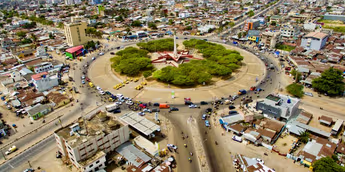The classification of several African countries as lower-middle-income puts them in a distinct position globally. Although this classification denotes a step up from low-income status, it also has a unique mix of benefits and drawbacks that influence these countries’ growth paths.

Lower-middle-income African nations frequently struggle with substantial levels of poverty and income inequality despite their being a level above low income countries. This inequality affects vulnerable populations, social mobility and inclusive growth.
Additionally, many low- and middle-income African countries suffer from infrastructural deficits and institutional weaknesses. Inadequate roads, electrical supply, and bureaucratic inefficiencies can stifle business operations, discourage investment, and hamper overall economic growth.
However, lower-middle-income countries are better positioned to participate in international commerce should the trajectory of their economies look positive. This could result in preferential trade agreements, lower tariffs, and better market access.
Investors tend to view lower-middle-income countries favorably due to a promising economic prospect and growth potential. This can attract foreign direct investment (FDI), which in turn stimulates job creation, technology transfer, and industrial development, contributing to overall economic expansion.
With that said, here are the African countries listed as lower-middle income countries by the World Bank.
List of African countries categorized as lower-middle income countries
• Angola
• Benin
• Cabo Verde
• Cameroon
• Comoros
• Congo, Republic
• Côte D’Ivoire
• Djibouti
• Egypt
• Eswatini
• Ghana
• Guinea
• Kenya
• Lesotho
• Mauritania
• Morocco
• Nigeria
• Sao Tome and Principe
• Senegal
• Tanzania
• Tunisia
• Zambia
• Zimbabwe
Source: Business Insider Africa
You must be logged in to post a comment.